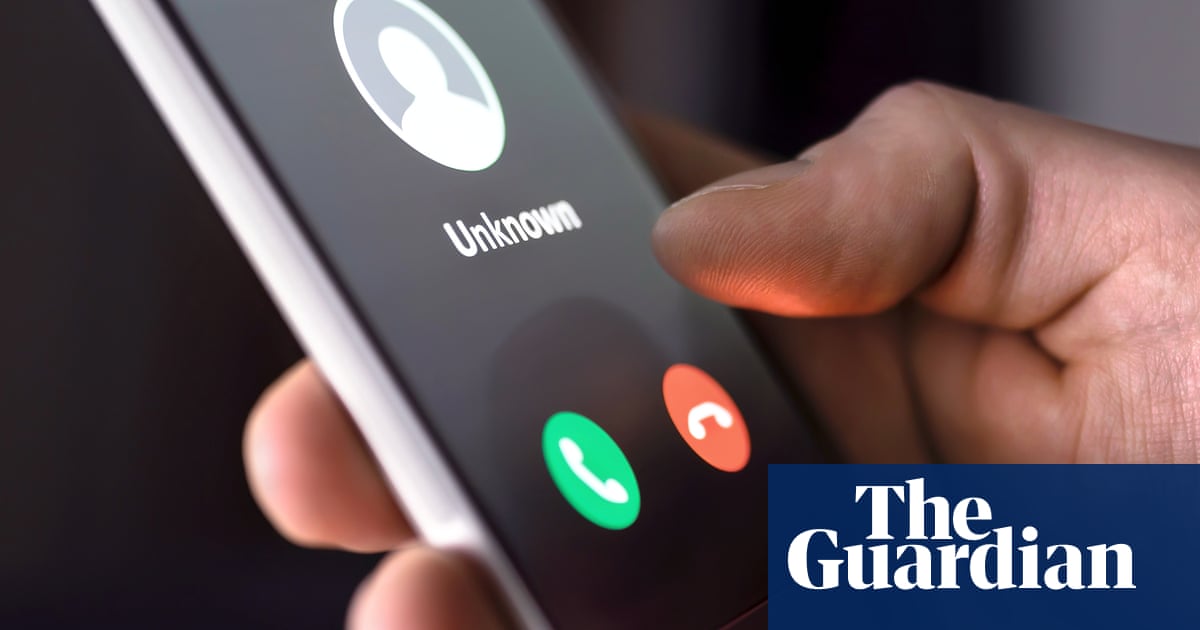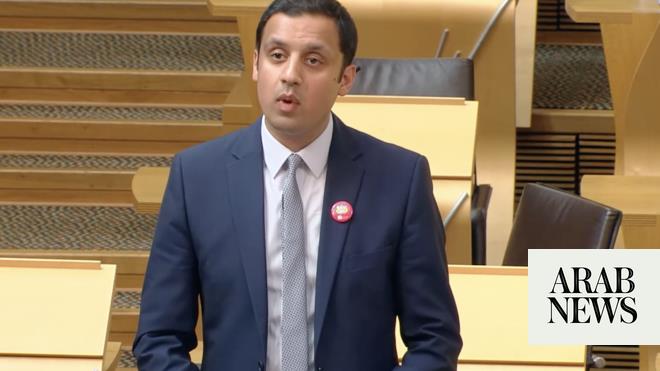
Labour has pledged a crackdown on global scammers who call UK phone numbers to con people out of their money, and criticised the government for a five-month delay in producing a new fraud strategy.
The shadow attorney general, Emily Thornberry, said Suella Braverman, the home secretary, had said the strategy would be published “shortly” exactly five months ago. Thornberry said that 1.5m offences would have been committed in England and Wales in that time.
The announcement comes as Labour seeks to move on from a damaging row over a Labour advertisement which claimed that the prime minister, Rishi Sunak, did not believe adults convicted of sexually assaulting children should go to prison.
The advert, which has caused internal splits, was part of a series on the Tory record on crime after a push on law and order campaigning last week. The Labour leader, Sir Keir Starmer, and the shadow chancellor, Rachel Reeves, will move the campaign on to the economy and cost of living this week.
Thornberry’s drive to highlight the government’s record on fraud seeks to bridge that campaign with crime and the cost of living.
Labour is proposing a total ban on “spoofing” UK numbers from overseas, plus a block on mobile calls from abroad using UK numbers unless the network provider confirms the user is roaming. Number spoofing occurs when scammers change their caller ID to disguise their identity from the person they are ringing, often making it look as if they are calling from the UK.
Labour said it anticipated pushback from industries that relied on overseas call centres, particularly in India, which handle genuine customer service requests. The party said Ofcom should register those companies and their numbers as exceptions, and block all spoofing calls not on that register.
Labour said the government had confirmed the change would not affect the UK-India trade deal’s terms being negotiated on digital and data services.
Thornberry said the changes could be made swiftly by beefing up new regulations which Ofcom is introducing in May, and that Labour would back the government if it moved to enforce any such change.
But in a letter to Braverman, she also highlighted a delayed government pledge to produce a “long-term fraud strategy” promised in a letter to herself from Braverman five months ago, and by Sunak in the Commons early in November.
Thornberry said: “Five months on, the country is still waiting for you and the prime minister to keep your promises, and publish that strategy. At least 10,000 offences are committed every day against working people and pensioners in our communities, for some destroying everything they have worked for all their lives, and yet the parasites who are stealing their wages and savings simply move on to their next round of victims with near total impunity.
“Far too many lives in Britain are being ruined every day, and far too many criminals around the world are growing rich at our expense, for you to delay your promised strategy any longer.”
Labour said two key changes would make operations of global scamming gangs far harder and that Ofcom’s new controls on overseas scam calls did not go far enough
There are no government figures for the proportion of fraud offences perpetrated by scammers based overseas, but recent investigations, including by the BBC series Scam Interceptors, suggests there are professionalised operations in parts of Asia.
Ofcom research in August 2022 showed 61% said people were very unlikely to answer an international number that they did not recognise; 40% said likewise where the number was withheld. But that figure fell to 25% if the incoming call was from an unrecognised UK mobile or landline number.
New rules from 15 May mean network providers will be required to identify numbers which do not uniquely identify the caller and block these calls. But there is no specific prevention for scammers continuing to buy legitimate UK numbers as they do at present.
Scammers are able to purchase genuine UK mobile numbers for spoofing purposes and can make as many calls as they want to the UK using a robo-dialler based overseas.
Labour said no phone call made from overseas using a UK telephone number should have that number displayed when it appeared on a UK mobile phone or digital landline.
It also proposes that all mobile calls from overseas using a UK number should be blocked unless the network provider confirms that the known bill payer for that number is currently roaming.
A Home Office spokesperson said: “This government is absolutely committed to cracking down on fraud and we continue to intensively work with partners across government, law enforcement and industry to protect the public.
“We have committed £400m over the next three years to bolster law enforcement’s response to economic crime, and have introduced the online safety bill and the financial services and markets bill to block fraud at the source and improve the reimbursement of victims.
“To drive the system we will shortly publish our fraud strategy. This sets out a coordinated response from government, law enforcement and the private sector to better protect the public and increase the disruption and prosecution of fraudsters.”












